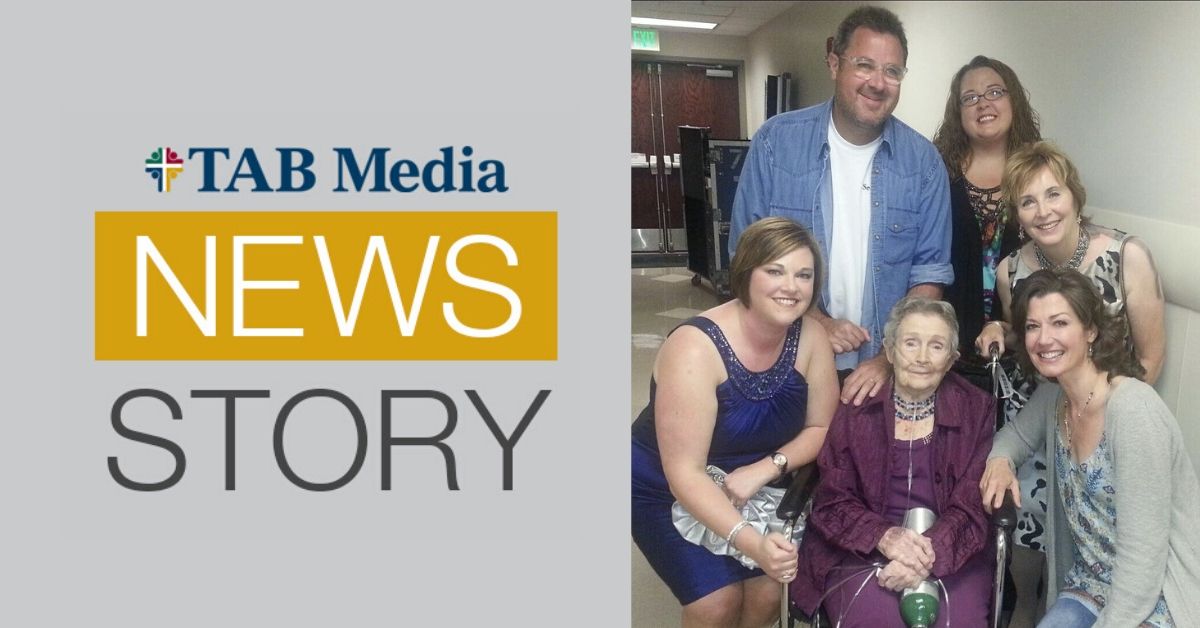Near the end of her life, Rachel Shank had a dream — she wanted to meet Vince Gill and Amy Grant.
So when the musical superstars came to Birmingham for a performance, Shank’s palliative care consultant Tara Strickland took Shank, her daughter and her hospice nurse to the show and arranged a meeting. Gill and Grant even sang to Shank during the show.
Making Shank’s dream come true was a boost for the woman who was nearing the end of her life from congestive heart failure — and just one of the ways palliative care specialists like Strickland help meet the emotional, social and spiritual needs of patients in their care.
Managing pain
Palliative care is medical and related care provided to a patient with a serious, life-threatening or terminal illness where the care manages symptoms, relieves pain and discomfort and improves quality of life.
“Palliative care is for anyone who has any kind of serious illness,” said Paige Butler of Baptist Hospice in Montgomery. “It can be offered at any time during the disease trajectory and actually it should begin closer to the beginning. It’s for anybody who has any kind of pain or suffering, who needs help with the goals of care or navigating the health care system.”
Patients receiving palliative care are usually experiencing severe pain, Strickland said, and palliative care specialists help them manage that pain until it is eliminated, or the patient is ready for hospice care, a next level of care for patients with a terminal prognosis.
Neither palliative care nor hospice provide curative measures, Butler said.
“We focus at that point on quality of life,” Butler said.
Palliative care provides a team approach to caregiving, and doctors, nurses, social workers, pastoral care providers, chaplains and counselors are all part of the team. A patient’s team often helps with management of health care providers, coordination of home care services and emotional and spiritual support for the patient and his or her family.
Palliative care services can be offered in the home, as well as in nursing homes, palliative care units and other long-term care or assisted living facilities.
Relieving symptoms
Care teams strive to relieve symptoms such as pain, anxiety, shortness of breath, fatigue, constipation, nausea and loss of appetite, while helping to improve the patient’s ability to meet the demands of daily life, increase his or her ability to tolerate medical treatments and aid the patient in understanding his or her condition and options for treatment.
“Anxiety is something we see as much as anything because [the patients] are in pain,” Strickland said. “They either don’t know where it’s coming from, or they do and they can’t do anything about it.”
Palliative care teams also can help to guide patients toward hospice and end-of-life care when that time comes.
Reassuring the dying
“There is a different level of anxiety if the illness is terminal,” Strickland said. “Terminal restlessness can develop during the last few days the patient is alive as they transition to actively dying. They are experiencing changes in their body, mind and spirit, including high blood pressure and fidgeting, and often they don’t know what they’re saying. We treat their anxiety to make sure the patient is comfortable.”
Strickland said often palliative care teams help the family even more than the patient. When a patient’s illness is terminal, waiting can be the hardest part.
“A lot of times our job is as important for the family as it is for the patient. Once the patient’s symptoms are managed, our biggest goal is to make sure the family is taken care of,” she said.
Strickland added that it’s important for families to choose palliative or hospice care early in the process to provide the best care from the beginning to the end of an illness.
“Hospice/palliative care is choosing comfort and quality of life versus further treatment and quantity,” Strickland said. “It doesn’t mean you’ve given up. It means you’ve chosen to be at home in your environment, surrounded by your loved ones, in peace and comfort, until God calls you home.”






Share with others: